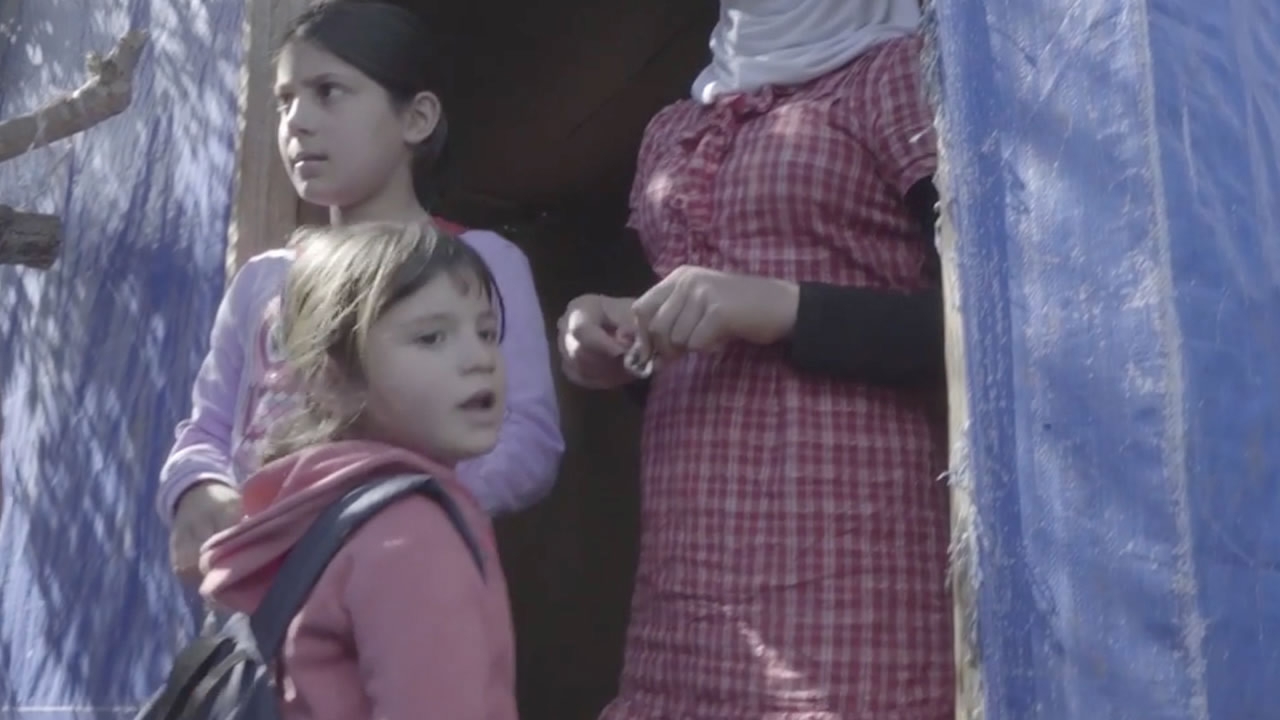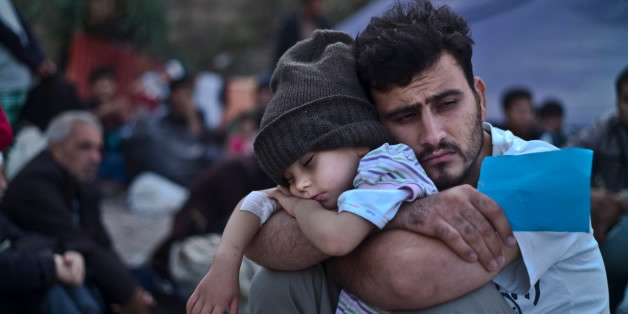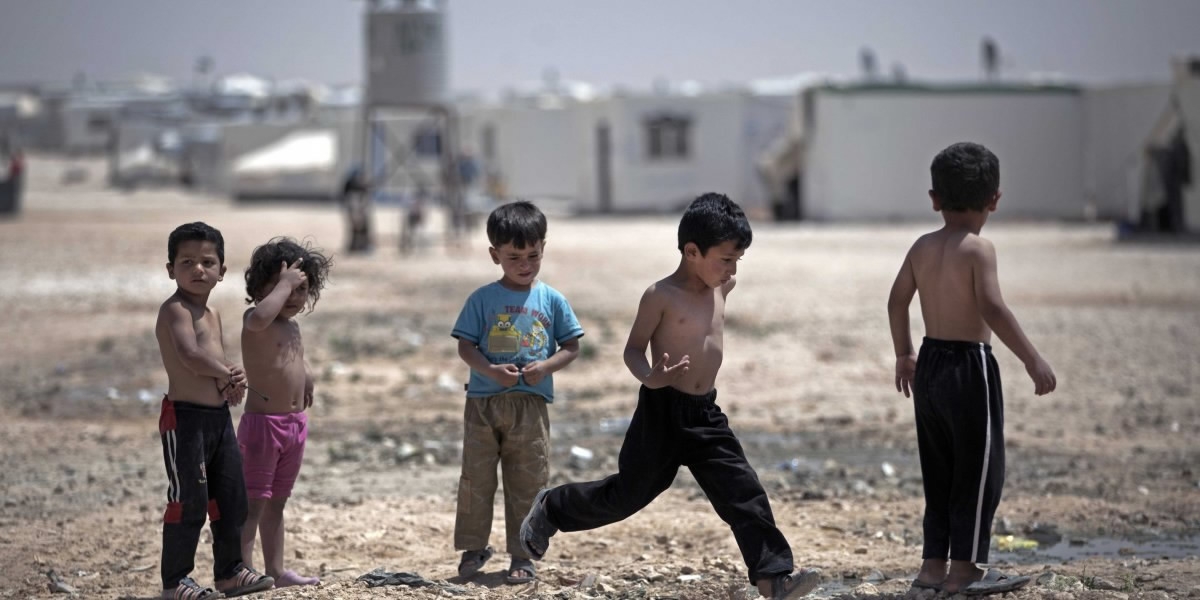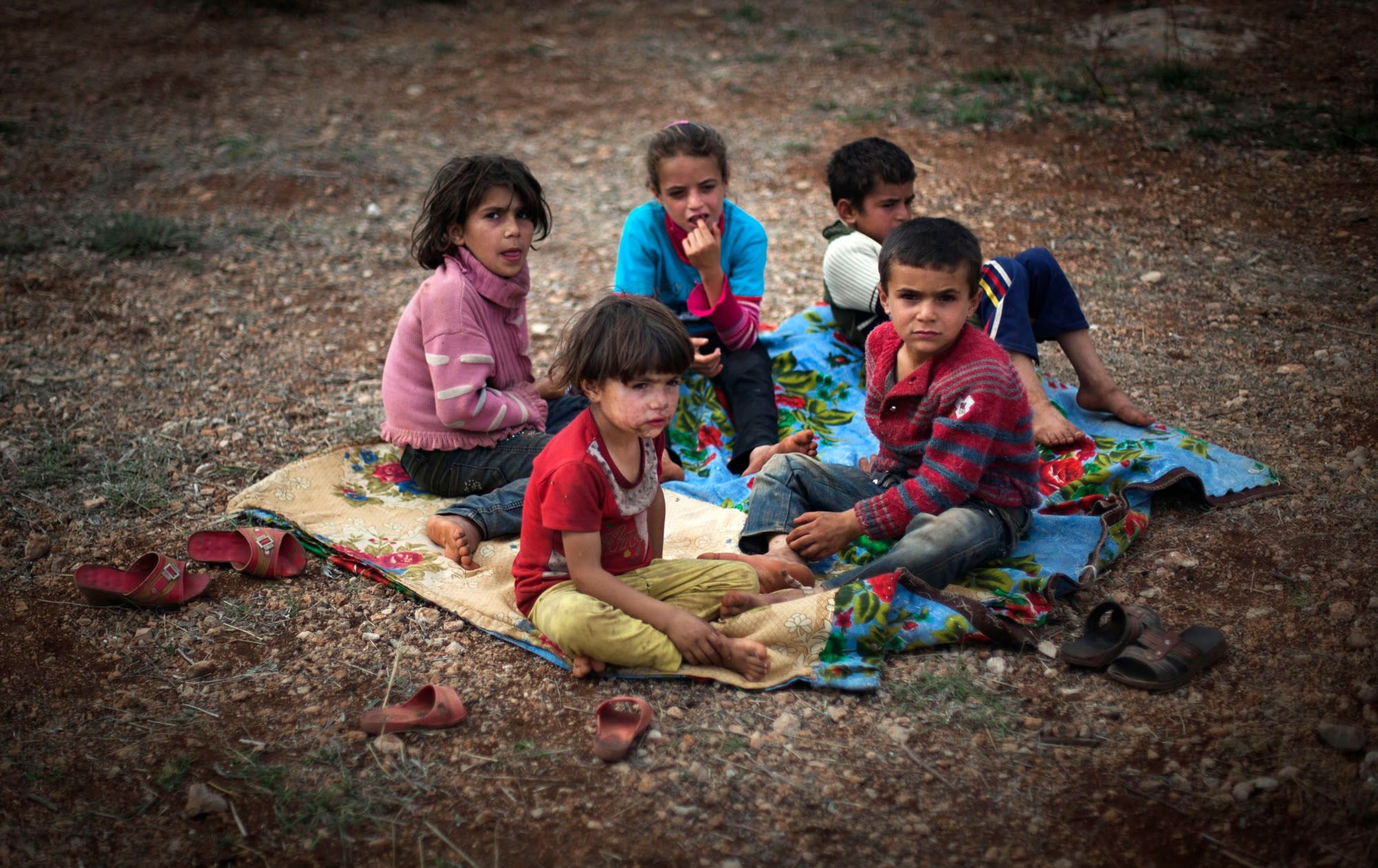
Politics
08:37, 21-Jul-2017
Longing to learn: Syrian refugee children in crisis

By CGTN's Sara Salman
Lebanon is a small Middle Eastern country of six million people.
But before the Syrian civil war, which started six years ago, its population was only 4.5 million.
The country now hosts more than one million refugees registered by the UN High Commissioner for Refugees, also known as UNHCR.

A Syrian refugee and his child in UNHCR /AP Photo
A Syrian refugee and his child in UNHCR /AP Photo
“Of that number, 500,000 are children of school-going age, but only half of them are in school,” said Bassam Khawaja, Human Rights Watch researcher for Lebanon.
“So, 250,000 Syrian children, about a quarter of a million are currently not getting a formal education in Lebanon.”
As of May 2015, the government instructed UNHCR to stop registering Syrian refugees.
And the number of children out of school could be even higher.

Syrian children play at a ground near UNHCR camp /AP Photo
Syrian children play at a ground near UNHCR camp /AP Photo
“Aside from the registered Syrian refugees, there is a whole other group of Syrians in the country who are not registered, the government estimates their number is about 500,000,” added Khaja.
“So, we don’t know how many of those 500,000 are children of school-going age.”
Lebanon is not a signatory to the United Nations 1951 Refugee Convention, and the country doesn’t have national legislation that deals with refugees.
The government currently offers Syrians temporary protection, and refers to them as “displaced.”
Refugee children can enroll in schools without proof of legal status. However, stringent residency regulations remain a significant barrier for Syrian families.

Syrian children sit on the ground at a camp in the Syrian village of Atmeh, near Turkish border with Syria, Nov. 8, 2012. /AP Photo
Syrian children sit on the ground at a camp in the Syrian village of Atmeh, near Turkish border with Syria, Nov. 8, 2012. /AP Photo
One strategy the Lebanese government has adopted to cope with the mass influx of refugees in public schools is the “second shift,” which essentially created afternoon classes in public schools only for Syrians.
Despite this, bullying and racism at second shift schools against Syrians have discouraged many refugee children from going to school.
Human Rights Watch estimates that at least 750,000 Syrian children are out of school in Turkey, Lebanon, and Jordan.
And rights groups warn that these children risk becoming a lost generation.
6983km

SITEMAP
Copyright © 2018 CGTN. Beijing ICP prepared NO.16065310-3
Copyright © 2018 CGTN. Beijing ICP prepared NO.16065310-3